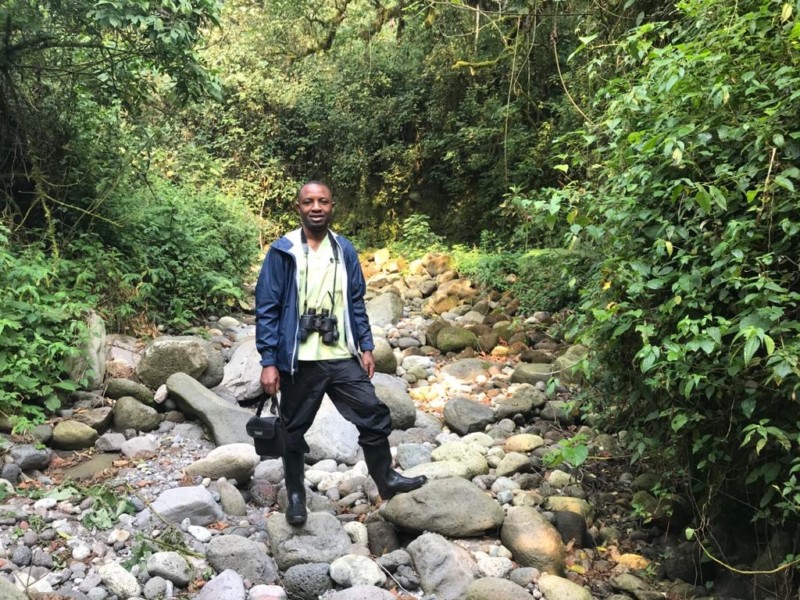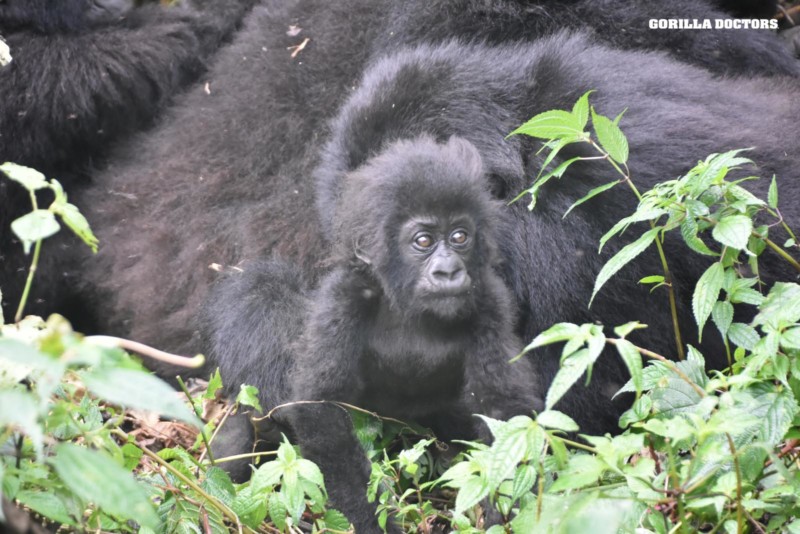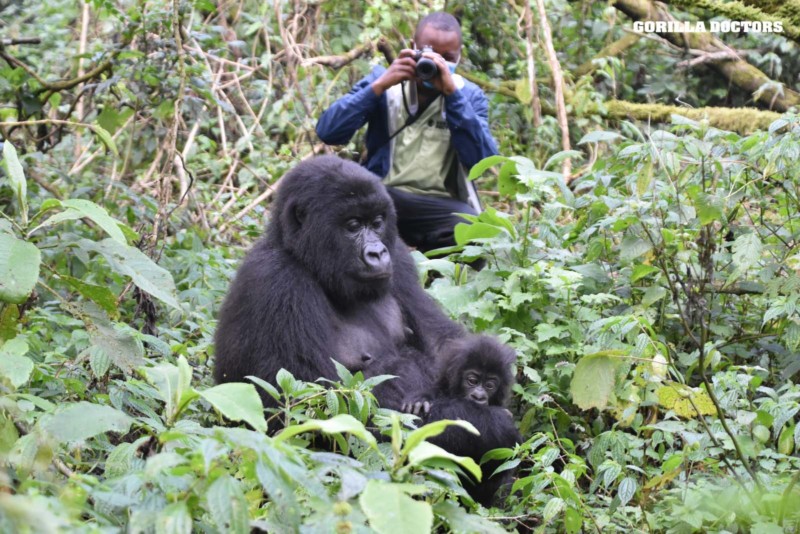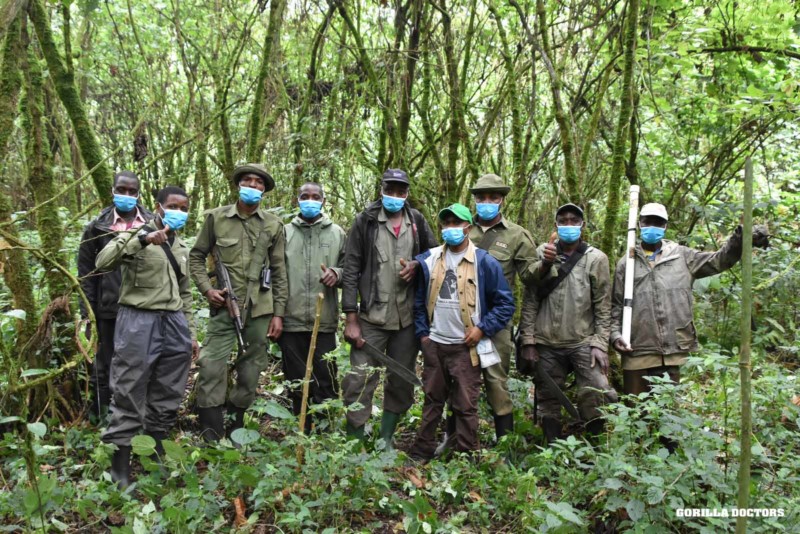Chasing a dream while being chased by a gorilla
By Gorilla Doctors Staff on Tuesday, March 9th, 2021 in Blog.Our newest Gorilla Doctor in DR Congo, Fabrice Katembo Malonga, started in his position with us in July 2020. We decided to sit down and have a conversation about what he has learned so far, how the gorillas have surprised him, and what has been his biggest challenge.
Before joining Gorilla Doctors, Dr. Fabrice first worked as a veterinary inspector of poultry and livestock. When the Ebolavirus outbreak began in 2018 (officially declared over in June 2020) Dr. Fabrice joined the Ministry of Health as a research supervisor for the Rwangoma/Beni Health District of eastern DRC. In 2019, Dr. Fabrice conducted a six-month internship at the Centre de Rehabilitation of Primates at Lwiro (CRPL) where he gained hands-on training in wildlife health and conservation under the mentorship of Dr. Luis Flores Giron and Lwiro staff.
A Conversation with Dr. Fabrice
Q: Fabrice, tell us about your work at CRPL – At Lwiro, I received practical training about conservation and more particularly about the various factors involved in the protection of animal health – especially of non-human primates. I learned about diet, preventative medicine, disease diagnosis, epidemiological surveillance, medical care, anesthesia, surgery, x-ray imaging and much more.
Q: Do you think this training helped prepare you to become a Gorilla Doctor? – It was during this time I was introduced to the concept of One Health and how the protection of human health and wildlife health are connected. During my internship we studied the prevalence of tuberculosis in animals and humans and I saw the concept of One Health in a real-world situation. Although I was a veterinarian, I think it was thanks to this training that I was the best candidate for the Gorilla Doctors position.
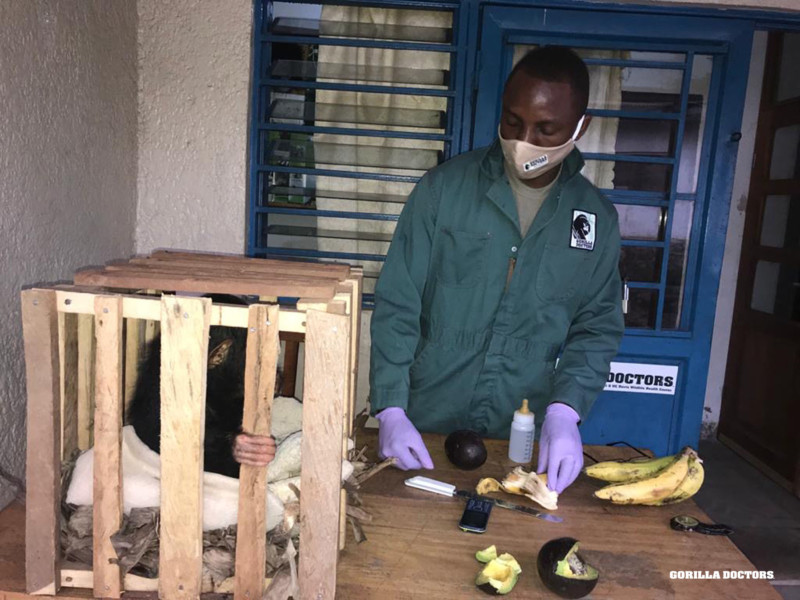
Dr. Fabrice conducts physical exam on rescued infant chimp before transport to Lwiro, 2020. © Gorilla Doctors
Q: How did it feel when Dr. Eddy (Head Veterinarian, DRC) told you that you got the job? I was very happy to join a team of experts in conservation medicine focused on gorillas, a unique species in my country. It is a dream that has come true for me.
Q: What have you learned since you started? – Since becoming a Gorilla Doctor, my knowledge of conservation, epidemiological surveillance and disease diagnosis has strengthened. I have especially learned about the way of life, diet and medical care of wild animals in their natural environment, including gorillas of course.
Q: What has been the most rewarding thing about your work so far? – I would say the spirit of consideration, collaboration and knowledge sharing among my colleagues. For me all of this is continued capacity building that strengthens my skills.
Q: What has been the most challenging? – The region where we work has many armed militia groups that create insecurity and safety risks in and around our work sites (Virunga and Kahuzi-Biega National Parks). Anytime we conduct health checks, monitoring visits or need to perform an intervention in Virunga National Park we must go into the field with a security escort.
Q: Is there anything about the gorillas that surprised you when you started conducting health checks? – Indeed! I’m often impressed by their family way of life and the love they have between them, especially between a mother and her baby. There is respect for the hierarchy within a family (respect for the head of the family = silverback), but also the jealousy of the silverbacks in their love life (they easily fight for a female).
“I think I still have a lot to learn from gorillas because each visit is a new story and experience.” – Dr. Fabrice
Q: What is one thing you’d like people to know that wasn’t covered in the other questions? – On my first visit to the gorillas I was a little stressed, but once I got there I realized I was in this other scientific and social world and I was very happy. We were conducting a health check of Nyakamwe group and a sub-adult started behaving as if he had been told I was new to the team. He targeted me, got me separated from the rest of the team and started chasing me around the forest! The trackers were able to intervene and he returned to his group. I sat down to rest, feeling stressed but also having a small smile.
Q: Last question! What is one thing people can do to support the mission of Gorilla Doctors (other than donating)? – Tell their family, friends and colleagues about the great mission of Gorilla Doctors in saving a species one gorilla at a time through its One Health approach.
Want to learn more about our veterinary team in DR Congo? Watch this short video and hear directly from Drs. Fabrice and Eddy –
https://www.gorilladoctors.org/donations/Support Gorilla Doctors
Follow us on Facebook, Instagram and Twitter


 Donate
Donate
